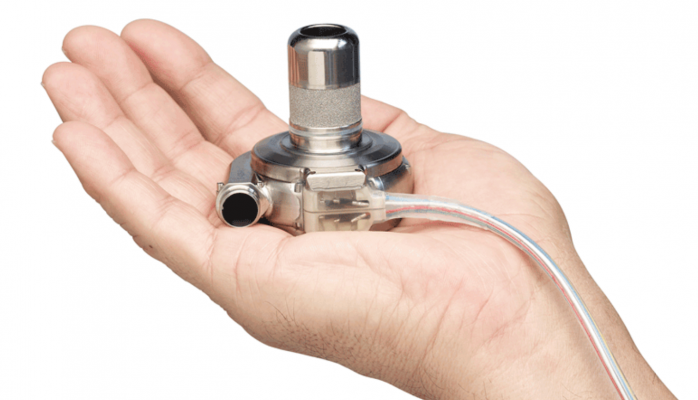
June 23, 2022 — Medtronic, Inc. is recalling a single lot of HeartWare HVAD System batteries due to welding defects that allow separation of the two cell battery packs used to power the system. The welding defect may cause the battery to malfunction and no longer provide power or prevent the battery from holding a full charge or properly recharging.
The U.S. Food and Drug Administration (FDA) has identified this as a Class I recall, the most serious type of recall. Use of these devices may cause serious injuries or death.
Recalled Product
- Product Names: Medtronic HVAD Batteries
- Product Codes: See Recall Database Entry
- Model Number: 1650DE
- Manufacturing Dates: April 13, 2021 to April 19, 2021
- Distribution Dates: April 20, 2021 to July 19, 2021
- Devices Recalled in the U.S.: 429
- Date Initiated by Firm: May 5, 2022
Device Use
The HeartWare Ventricular Assist Device (HVAD) System is used to help the heart continue to pump blood to the rest of the body. The HVAD system is used as a bridge to cardiac transplants in patients who are at risk of death from end-stage left ventricular heart failure, for heart tissue recovery, or as destination therapy (DT) in patients for whom heart transplants are not planned.
Reason for Recall
Medtronic, Inc. is recalling a single lot of HeartWare HVAD System batteries due to welding defects that allow separation of the two cell battery packs used to power the system. The welding defect may cause the battery to malfunction and no longer provide power or prevent the battery from holding a full charge or properly recharging. As a result, the battery may fail suddenly.
If this malfunction occurs, it will trigger a Power Disconnect alarm on the controller screen and in the Alarm Log tab of the HVAD Monitor while the affected battery is still connected to the controller. These alarms may temporarily resolve, but the battery will continue to fail.
The use of these batteries may lead to device malfunction, death, or serious injury.
Medtronic reports one death associated with this recall, and two complaints in the affected lot.
Who May be Affected
- Health care providers treating patients with the Heartware HVAD System
- Patients who have the Heartware HVAD System implanted
What to Do
On May 5, 2022, Medtronic sent an Urgent Medical Device Correction letter to all affected customers.
- Immediately identify and quarantine all affected batteries.
- Immediately notify patients with affected batteries that Medtronic is conducting this retrieval and have them remove these batteries from service. Medtronic has provided a patient template that may be used to communicate directly with patients.
- Contact a Medtronic Field Representative to assist you in the return of the affected product.
- Complete the enclosed Customer Confirmation Form and follow the instructions to initiate an exchange. When complete please return the form to [email protected].
- Share this notice to all those who need to be aware within your organization or to any organization where the affected batteries has been transferred
Medtronic is replacing the affected batteries with new product and has implemented actions to improve control of the welding process.
Contact Information
Health care providers with questions about this recall should contact their local Medtronic Representative.
Patients with questions about this recall should contact Medtronic Patient Services at 800-635-3930 (Monday-Friday, 8 a.m. to 5 p.m. Central time).
For more information: www.fda.gov
Related HVAD Content:
Medtronic Recalls HVAD Pump Implant Kit for Pump Weld Defect
Medtronic Recalls HVAD Pump Implant Kits After 2 Deaths and 19 Serious Injuries
Class I Recall Issued for Medtronic HeartWare HVAD Pump
Medtronic HeartWare HVAD System Approved for Destination Therapy
FDA, Medtronic Expand HeartWare VAD Recall, Announces New Recall of VAD Component
FDA Announces Two HeartWare HVAD System Class 1 Recalls
New Heart Assist Pump Allows Minimally Invasive Approach at Vanderbilt Heart and Vascular Institute


 February 03, 2026
February 03, 2026 









